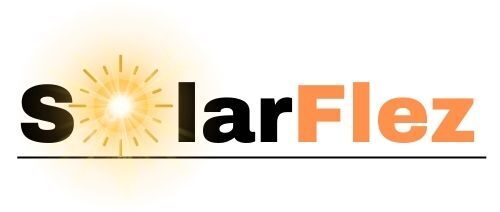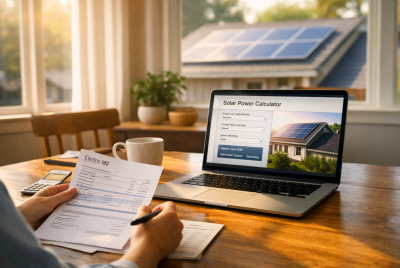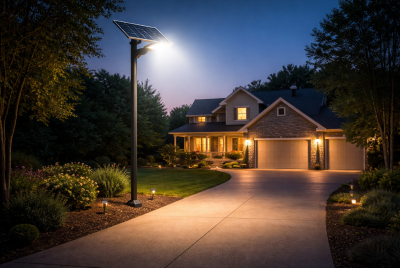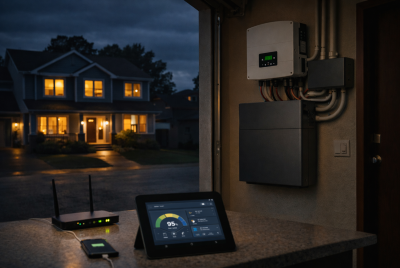Solar Power for Camping: Your Guide to Sustainable Adventure
The fundamental appeal of camping is the thrill of venturing into nature, but let’s be honest—there are moments when you still want certain comforts. Have you ever noticed your phone dying while using it for maps? Or perhaps you require some illumination in the tent at night? In that case, solar power really shines! Let’s discuss how to use solar energy to charge electronics, improve camping comfort, and protect the environment all at once..
Why Go Solar When Camping?
Solar energy is more than just a means of charging devices; it’s a way of thinking. Common camping power sources, such gas generators or batteries, are big, noisy, and need to be refilled frequently. However, solar? It is silent, renewable, and eternal. Imagine not worrying about running out of juice because everything would be taken care of by the sun!
Solar Power Basics: What’s Involved?
Setting up solar power for camping is not too tough. A battery to store energy for later use, solar panels to gather sunlight, and perhaps an inverter to transfer power if you’re utilizing larger gadgets are the three essential parts. This trio will help transform that bright sunlight into usable power wherever you put up your tent.
Solar Panels: The Heart of Your Setup
The solar panel is like the MVP of your camping setup. There’s a bunch of different types and sizes to pick from, each with a different purpose. Are you someone who’s all about those gadgets, or do you just need the basics? Knowing how much power you’ll use is key to picking the right panel.
Types of Solar Panels for Camping
There are a few types of solar panels you might want to look at, and each one has its perks:
- Monocrystalline Panels: These are efficient but on the pricier side.
- Polycrystalline Panels: Affordable, but the trade-off is a bit less efficiency.
- Flexible Panels: Lightweight and easy to fold, making them perfect for backpackers.
How Much Power Do You Need?
Take a sec to think about what you’ll be charging. Is it just your phone, a GPS, or maybe a headlamp? Or do you need something heftier, like a small fridge or a laptop? Make a quick list of what you’re bringing and check the power requirements. This will help you figure out the best setup so you’re not stuck in the dark (literally).
Battery Storage: Keeping the Power Flowing
Since the sun takes a break at night, you’ll want a battery to hold the power you collect during the day. A good battery with enough capacity is like your backup plan for cloudy days or nighttime. Lithium-ion batteries are a favorite because they’re lighter and more efficient, which makes them a solid choice for camping.
Portable Power Stations vs. Solar Generators
If you’re looking for more power than just a basic solar charger, a portable power station or a solar generator might be the way to go. People often mix up these two, but here’s the lowdown: a solar generator usually has solar panels built in, while a power station needs external panels connected. Both are excellent options for campers needing a bit more juice.
Choosing the Right Solar Charger
A solar charger is clutch if you’re mainly focused on keeping small gadgets powered. Most are lightweight, compact, and designed for the outdoors (hello, water resistance!). They’re perfect for anyone who just needs to keep a few essentials, like a phone or GPS, charged without lugging too much gear.
Solar-Powered Gadgets: What’s Worth Bringing?
There’s no shortage of solar gadgets for campers these days—everything from lanterns to cookers to fans. If you’re looking to keep it light, pick gadgets that can multitask, like a solar lantern with a USB charging port. This way, you’re not weighed down with extra stuff but still have what you need.
Setting Up a Solar-Powered Campsite
Setting up your solar-powered campsite is pretty simple once you’ve got the right gear. Place your solar panels where they’ll get the most sun, stash your battery in a shady spot, and hook everything up. Be sure to read any instructions your gear comes with to avoid any “uh-oh” moments.
Maximizing Efficiency with Solar Power
Want to make sure you’re getting the most bang for your sunlight buck? Set up your panels so they face the sun directly, keep them clean from dirt and dust, and avoid shady spots. A little attention to detail goes a long way toward keeping your devices powered up.
Solar Power and Weather Conditions
Weather can definitely mess with your solar plans. Overcast days mean less power, so it’s good to have a bigger battery or a backup power source just in case. But no worries—most modern panels can still gather energy even on cloudy days, so you won’t be completely out of luck.
Solar Charging Tips for Campers
To make the most out of solar charging, try these tips:
- Charge your devices directly during sunny hours.
- Use a power bank to store extra energy for later.
- Try to charge everything around midday when the sun’s the strongest.
Solar for Backpackers vs. Car Campers
Not all campers are created equal! Backpackers will want something lightweight and easy to pack, like foldable panels and compact power banks. Car campers, on the other hand, can afford to bring a bit more bulk and can go for bigger panels and batteries, allowing for a more comfortable (and powered-up) campsite.
Solar Power and Eco-Friendliness
One of the coolest things about solar power is how green it is. By cutting back on disposable batteries or fuel-based generators, you’re helping to preserve the very nature you’re enjoying. Solar power lets you tread lighter on the environment while still giving you some of those creature comforts.
Common Challenges and How to Overcome Them
Camping with solar power isn’t always foolproof—things like cloudy skies, misplaced panels, or low battery power can be a bummer. Planning ahead can help you avoid these snags. Check the forecast, pack a backup battery, and you’ll be ready for whatever comes your way.
Budgeting for a Solar Setup
Solar setups can seem pricey upfront, but you can find gear for all budgets. Look for kits that bundle essential components and stick to items that match your camping needs so you’re not splurging on features you won’t use.
Lightweight Solar Setups for Minimalists
If you’re all about keeping things simple, go for a small foldable panel paired with a compact battery bank. This setup is perfect for anyone who wants to keep the essentials charged without carrying extra weight.
Solar-Powered Camp Kitchens
Yes, you can even bring solar power to your camp kitchen! Solar cookers, fridges, and even coffee makers are available. While they’re better suited for car campers, these gadgets can make camp life extra cozy—who doesn’t want fresh coffee in the morning?
Troubleshooting Solar Equipment in the Wild
If something’s not working right, it’s usually an easy fix. Most issues come down to loose connections or a drained battery. Double-check your gear, make sure your panels are getting enough light, and keep the manual handy just in case.
Pros and Cons of Solar Power for Camping
Solar power brings a lot to the table, but it’s not perfect:
- Pros: Clean energy, quiet, renewable, and portable.
- Cons: Dependent on sunshine, costs more upfront, and limited power for big appliances.
Solar Power Safety Tips
To make sure your solar gear lasts, treat it right. Avoid overcharging your devices, keep batteries out of direct sun, and secure panels if it’s windy. A little care goes a long way, and your setup will thank you.
The Future of Solar Camping Gear
Solar gear is only getting better. With advancements in tech, it’s becoming more efficient, affordable, and durable. From solar tents to super-efficient power stations, the future’s looking bright for campers wanting to stay off-grid without sacrificing comfort.
Related Products Available on Amazon
For campers looking to integrate solar power into their outdoor adventures, Amazon offers a variety of products designed to meet different energy needs. Here are some notable options:
- Portable Solar Generators
- Jackery Portable Power Station Explorer 1000: This high-capacity power station provides 1000W of continuous power and can be recharged via solar panels, making it ideal for camping trips.
- Foldable Solar Panels
- BigBlue 3 USB Ports 28W Solar Charger: A lightweight and compact solar charger with high efficiency, suitable for charging smartphones and tablets on the go.
- Solar-Powered Lights
- LuminAID PackLite Max 2-in-1 Phone Charger: This inflatable solar lantern doubles as a phone charger, providing up to 50 hours of light and a 2000mAh battery for charging devices.
- MPOWERD Luci Outdoor 2.0: A lightweight, inflatable solar lantern that is waterproof and shatterproof, ideal for illuminating your campsite.
- Solar-Powered Fans
- Ansee Solar Powered Fan with LED Light: A multifunctional device that serves as a fan, light, and emergency power bank, suitable for camping and outdoor activities.
- Solar-Powered Cookers
- GoSun Sport Solar Oven: This portable solar cooker can bake, roast, or steam a meal in as little as 20 minutes, reaching temperatures up to 550°F.
- Sunflair Portable Solar Oven Deluxe Kit: A lightweight and compact solar oven that folds down for easy transport, including pots, pans, and a thermometer.
Key Scientific Research and Reviews on Solar Power for Camping and Outdoor Use
“Is Solar Power Right for Camp?” by Rick Stryker (2017)
This article examines the practicality of solar panel technology for camping purposes. It discusses the advancements in photovoltaic (PV) systems, their affordability, and potential applications in camp settings. The author emphasizes the importance of understanding how solar systems work, their possible camp applications, and considerations for safety and maintenance.
“Stand-alone power system” (2024)
This comprehensive review provides an overview of stand-alone power systems, which are essential for off-grid locations such as remote camping sites. It details various methods of electricity generation, including photovoltaic systems using solar panels, and discusses energy storage solutions like battery banks. The article also covers system monitoring, performance assessment, and load-related challenges, offering valuable insights for campers considering solar power setups.
“The Open Solar Outdoors Test Field”
This project involves a fully grid-connected test system that continuously monitors the output of over 100 photovoltaic modules, correlating their performance with accurate meteorological readings. The findings provide valuable information on the actual performance of photovoltaic modules in real-world conditions, which can inform campers about the efficiency and reliability of solar panels in various environments.
Conclusion: Embrace Solar Power for a Greener, Brighter Camping Experience
Solar power for camping? Absolutely worth it. It’s the perfect mix of convenience, eco-friendliness, and freedom from traditional power sources. Whether you’re a weekend warrior or a backcountry explorer, investing in solar can transform your camping experience. With the right setup, you’ll be powered up, off-grid, and doing your part to keep nature pristine.
FAQs About Solar Power for Camping
Can solar panels charge in cloudy weather?
Yep! They’re less efficient, but they still produce some power even on cloudy days, though it might take a bit longer.
What’s the difference between a solar generator and a power station?
A solar generator usually has built-in solar panels, while a power station needs you to connect external panels. Both are good options, just depends on your preference.
Is solar power worth it for short camping trips?
For quick trips, a small solar charger or power bank should do the trick if you’re only charging a phone or two. Solar is best for longer stays or off-grid locations.
How do I keep my solar equipment safe in the wild?
Protect it by keeping batteries shaded, securing panels in high winds, and checking connections. This helps keep everything in tip-top shape.
Are solar panels durable enough for outdoor use?
Yes, most camping panels are designed to be weather-resistant and tough. Just check the product specs to make sure they’ll hold up to your adventure.




